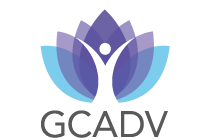Resources
Trainings
- Practicing Cultural Humility and Defining Underserved Populations
- This webinar outlines the definition of cultural humility versus cultural competency, and offers a framework for incorporating the practice of cultural humility into our work with survivors and their families.
- The webinar reviews a three-tier concept of underserved, un-served, and inadequately served communities, to help in understanding who is not being reached and what strategies can be used to move past cultural barriers.
- The intended audience for this webinar includes advocates and administrative staff from domestic violence programs.
- Free webinar available here.
- Serving Black and African American Women Survivors of Intimate Partner Violence
- Two day training for advocates at main stream organizations to gain a thorough understanding of the dynamics of servicing this community. Topics addressed will include:
- Shifting: The effects of historical trauma and IPV
- Barriers faced by survivors due to historical trauma
- Cultural Competency vs. Cultural Humility
- A collective evaluation of our advocacy
- Historical trauma and help seeking behaviors
- Creativity and the connection to Trauma Informed Care (TIC) services
- To book this training for your organization please email Leona Williams lwilliams@gcadv.org
- Two day training for advocates at main stream organizations to gain a thorough understanding of the dynamics of servicing this community. Topics addressed will include:
- Don’t Knock the Hustle
- This in person training explores non-traditional was for survivors to gain financial empowerment. It is centered on a trauma-informed, survivor-focused, and empowerment based approach, with a focus on tapping into and cultivating existing creative skills.
- Advocates will also gain an understanding of the larger systems of oppression that effect survivors from marginalized and culturally-specific communities.
- To book this training for your organization please email Leona Williams lwilliams@gcadv.org
- Impact of DV on LGBTQ People of Color
- LGBTQ Black/African American survivors are more likely to experience physical intimate partner violence, compared to those who do not identify as Black/African American. Additionally LGBTQ survivors of color from this community, including people of color who identify as transgender, immigrant, or living with disabilities are more likely to experience certain economic and social inequities that make them more vulnerable to experiencing IPV.
- This two day training is designed to provide advocates and domestic violence program staff the basic principles of working with LGBTQ survivors of color across identities. Topics that are addressed include:
- Cultural complexity of disclosing experiences of IPV and coming out process for LGBTQ people of color.
- Terms associated with LGBTQ identities for people of color.
- The impact of bias and oppression on survivors who identify as LGBTQ people of color.
- Issues and challenges faced by survivors who identify as LGBTQ people of color.
- To book this training for your organization please email Leona Williams lwilliams@gcadv.org
- Racial Justice and White Aspiring Ally-ship Webinar
- Free online one and a half hour webinar with resources click here.
- In order to best meet the needs of people of color who are victims of domestic violence, those of us who strive to be White allies must be willing to look at the intersections of racism, oppression and victimization in our work.
- In this webinar, we will:
- Unpack the definitions of racism, discrimination, and prejudice
- Identify the unique barriers faced by victims who are people of color
- Understand our reluctance as White people to talk about race and racism
- Define what it means to be a White aspiring ally
- Determine concrete ways in which we as White aspiring allies can push the domestic violence movement toward racial justice and equity
The organization builds collaborative relationships with stakeholders and communities to create social change and raise awareness in order to achieve safer communities free from domestic violence. Learn more here.
In fiscal year 2016, GCADV expanded its work in underserved communities in response to the barriers to responsive services faced by specific victim populations in Georgia, including victims of color, victims living in rural communities, victims with disabilities, and victims who identify as LGBTQ. We began hosting a series of Community Conversations with the African-American community first where the impact of domestic violence and related barriers to service have had the most tragic impact. Our goal, is to partner with the community in breaking down barriers to service and obtaining safe and effective culturally responsive care through our member programs, both mainstream and community-based. Learn more here.
Community RISE
GCADV’s Community Relationships Informing Survivor Engagement (RISE) Project, supports Georgia’s community based non-profit organizations providing culturally relevant services to survivors of domestic violence (DV) who identify from communities of color and other marginalized communities. This project is specifically designed to cater to the needs of small, non-traditional, grassroots organizations who are under-resourced as they rise in their communities to meet the short-and long-term needs of DV survivors. Selected organizations will receive up to twenty four months of intense on-site training and technical assistance, with the potential for long term follow-up and support.
Community Based Organizations
Amani Women Center – Providing life skills training for refugee women.
Noor Family Services – culturally-sensitive services for foreign-born and immigrant women and children impacted by domestic violence.
Precious Petals Foundation Inc.
